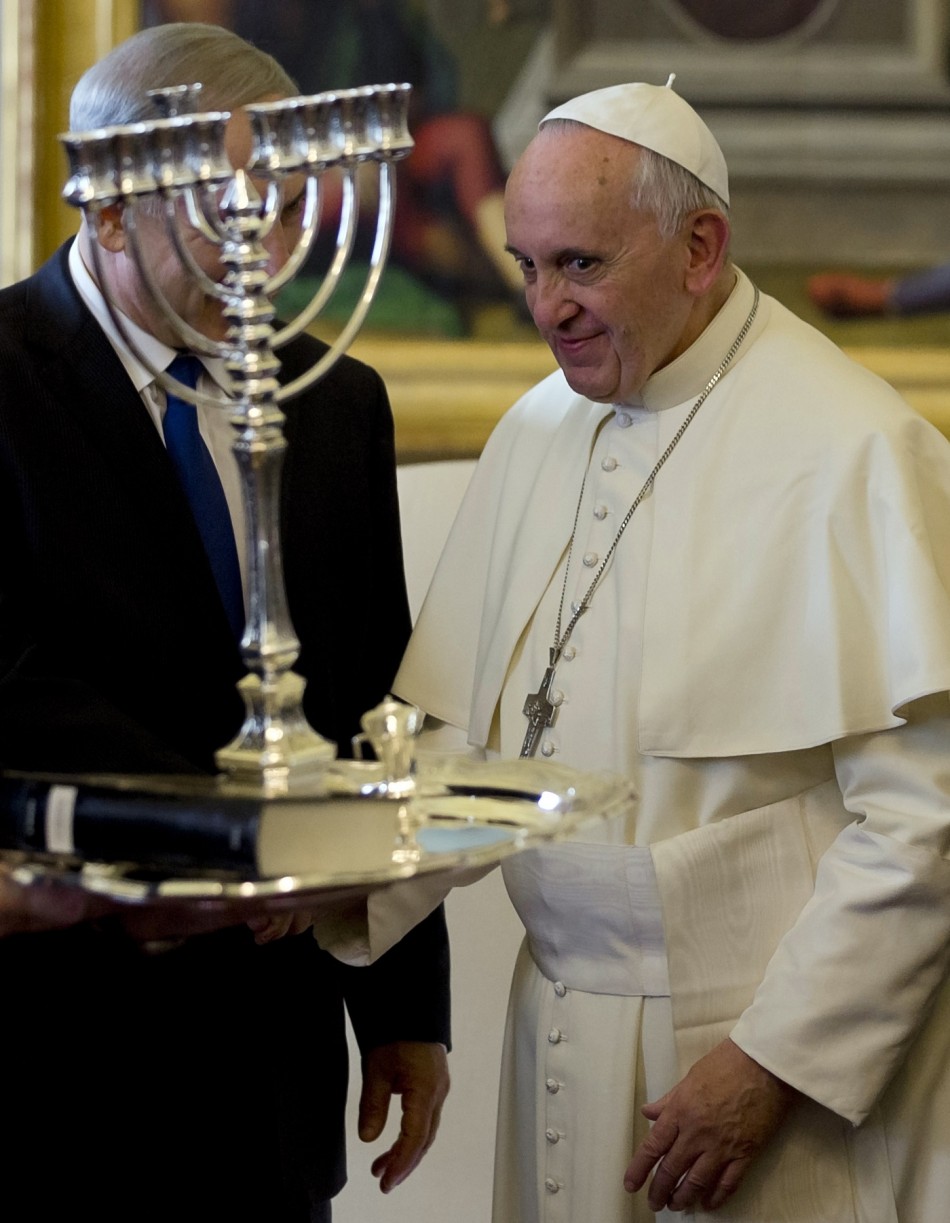Pope Francis's visit to Israel was a momentous occasion that resonated deeply with people of all faiths around the world. As the leader of the Catholic Church, Pope Francis has consistently been a voice for peace and reconciliation, advocating for dialogue and understanding between conflicting parties. His journey to the Holy Land symbolized not only his commitment to interfaith relations but also his unwavering dedication to promoting harmony in one of the world's most contested regions.
During his historic visit, Pope Francis met with various religious leaders, including those from Jewish and Islamic communities, underscoring the importance of mutual respect and cooperation. By walking the same paths as Jesus Christ and visiting sacred sites revered by Christians, Jews, and Muslims alike, he reinforced the shared heritage that binds these diverse groups together. This pilgrimage served as a powerful reminder of the potential for unity amidst diversity.
A Call for Justice Amidst Conflict
In light of recent developments, it is disheartening to learn that Israel will not send a senior representative to Pope Francis's funeral. Despite the pontiff's significant contributions towards peacebuilding efforts within the region, this decision reflects ongoing tensions between Israel and Vatican City. Throughout his papacy, Pope Francis remained an outspoken advocate for the Palestinian cause, particularly criticizing Israel's prolonged military operations against Gaza.
The absence of high-level Israeli representation at such a solemn event highlights the complexities surrounding international diplomacy when addressing humanitarian crises. While President Isaac Herzog paid tribute through heartfelt words following the pope’s passing, other officials delayed expressing their condolences. Such actions may further strain already delicate relationships between nations striving for coexistence.
This situation underscores the challenges faced by global leaders attempting to bridge divides while maintaining national interests. It calls attention to the necessity of fostering genuine communication channels aimed at resolving disputes peacefully rather than exacerbating them through perceived indifference or neglect.
An Appeal for Humanity in Times of Crisis
Pope Francis intensified his critique of Israel's actions during its military campaign in Gaza, emphasizing the dire humanitarian consequences affecting innocent civilians. In a poignant address delivered via an aide, he condemned the devastating impact on children who suffer due to lack of essential services like healthcare and electricity. His remarks highlighted the urgent need for accountability and compassion in conflict zones worldwide.
By drawing attention to specific hardships endured by vulnerable populations, Pope Francis reiterated his stance against indiscriminate violence targeting noncombatants. He urged global leaders to prioritize human life above political agendas, reminding us all of our moral obligation to protect those unable to defend themselves. This message resonates beyond regional boundaries, encouraging collective action toward alleviating suffering wherever it occurs.
His advocacy serves as both a challenge and inspiration for policymakers seeking equitable solutions amidst protracted conflicts. Through persistent dialogue and empathy-driven initiatives, there remains hope for transforming adversarial dynamics into collaborative partnerships dedicated to safeguarding humanity's common good.
Seeking Accountability Through Investigation
Pope Francis took a bold step by calling for an impartial investigation into whether Israel's actions in Gaza amount to genocide. Such a declaration carries profound implications, demanding rigorous scrutiny of evidence under international law frameworks. This initiative exemplifies his commitment to upholding justice and ensuring transparency in matters concerning mass atrocities.
Investigations of this nature require meticulous examination of facts, testimonies, and contextual factors contributing to alleged violations. They aim to establish clear responsibilities while providing pathways for redress and prevention measures moving forward. By supporting thorough inquiries, Pope Francis aligns himself with universal principles advocating for equality before the law regardless of nationality or affiliation.
This pursuit of truth and accountability reinforces the importance of adhering to legal standards even during tumultuous periods characterized by heightened emotions and polarized opinions. It invites reflection upon how far we have come collectively as humanity yet acknowledges areas requiring improvement in safeguarding fundamental rights universally recognized.
Defining War vs Cruelty: A Moral Distinction
Pope Francis's legacy includes steadfastly speaking truth to power without fear or favor. His candid observations regarding the Israel-Gaza conflict reflect a broader critique of modern warfare practices where civilian casualties often outweigh strategic gains. Labeling certain tactics as cruelty instead of war prompts critical examination of intent versus outcome in armed confrontations.
By distinguishing between legitimate military engagements and gratuitous harm inflicted upon innocents, he challenges conventional narratives perpetuating cycles of retribution. Instead, he champions restorative approaches centered around healing fractured societies and rebuilding trust among former adversaries. These perspectives offer alternative paradigms for conflict resolution grounded in ethical considerations rather than mere expediency.
As we honor Pope Francis's memory, let us embrace his vision of a more compassionate world where differences are resolved through constructive engagement rather than destructive means. His teachings remind us that true strength lies not in dominance but in extending olive branches toward lasting peace.
Balancing Anti-Semitism Discourse
Addressing anti-Semitism remains integral to Pope Francis's mission of fostering inclusivity across cultures and religions. During a meeting with leaders from the World Jewish Congress, he unequivocally condemned attacks targeting Jews and Israel alike, reinforcing solidarity between Christian and Jewish communities globally. This reaffirmation comes amid rising incidents of hate crimes worldwide, underscoring the urgency of combating intolerance effectively.
His emphasis on unity counters divisive forces seeking to exploit historical grievances for nefarious purposes. By acknowledging shared values and aspirations, Pope Francis fosters environments conducive to respectful discourse and collaboration. Such efforts strengthen societal bonds necessary for countering extremist ideologies threatening social cohesion.
Ultimately, Pope Francis's leadership exemplifies the transformative power of principled leadership rooted in love and understanding. As we navigate increasingly complex geopolitical landscapes, his example encourages embracing diversity as a source of enrichment rather than division, paving the way for a brighter future for generations to come.

